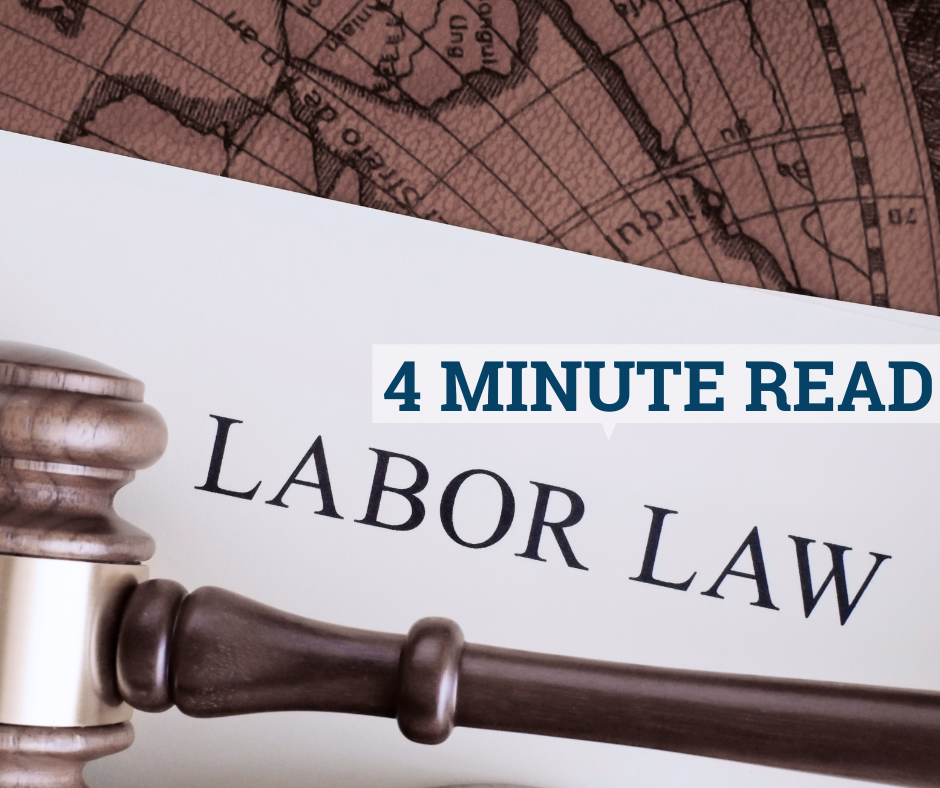
The U.S. Department of Labor (DOL) recently announced a significant change that will impact millions of workers across the country. The final rule to increase the minimum salary level for the Fair Labor Standards Act (FLSA) “white collar” exemptions will have far-reaching effects on employers and employees. It’s essential to explore the implications of these changes, especially for different state regulations.
Changes In Minimum Salary Levels
The DOL’s announcement sets the minimum salary level for the FLSA “white collar” exemptions to increase in two phases. The first phase, effective July 1, 2024, will see the minimum salary level rise from $684 to $844 per week, or from $35,568 per year to $43,888 per year. However, on January 1, 2025, the minimum salary level will experience another hike, reaching $1,128 per week or $58,656 per year.
Impact On States
The new salary thresholds for white-collar exemptions will affect different states, depending on their existing labor laws and regulations. Let’s break down the impact based on the different categories of states:
States with no general overtime pay provisions
There are 17 states without general overtime pay provisions. Employers in these states, covered by the FLSA, must adhere to the federal overtime pay requirements, including the new salary thresholds. These states include:
- Alabama
- Arizona
- Delaware
- Florida
- Georgia
- Idaho
- Louisiana
- Mississippi
- Nebraska
- Oklahoma
- South Carolina
- South Dakota
- Tennessee
- Texas
- Utah
- Virginia
- Wyoming
States and territories referring to FLSA overtime definitions
Currently, 14 states and territories rely on or directly refer to the overtime definitions found in the FLSA. Consequently, they’re also obligated to follow the new salary thresholds. These states and territories include:
- Arkansas
- District of Columbia
- Indiana
- Kansas
- Kentucky
- Maryland
- Massachusetts
- Michigan
- Missouri
- Nevada
- New Hampshire
- North Carolina
- Ohio
- Rhode Island
States with their own overtime rules
In addition to the above, there are 20 states that have their own overtime rules to consider alongside the federal regulations. These states include:
- Alaska
- California
- Colorado
- Connecticut
- Hawaii
- Illinois
- Iowa
- Maine
- Minnesota
- Montana
- New Jersey
- New Mexico
- New York
- North Dakota
- Oregon
- Pennsylvania
- Vermont
- Washington
- West Virginia
- Wisconsin
Interaction With State Laws
It’s important to note the interaction between the new FLSA salary thresholds and state laws is critical. While state law requirements are less favorable to an employee than the FLSA, the state laws apply only to employees who are not covered by the FLSA. On the contrary, if the state requirements are more favorable to an employee than the FLSA, they apply to all employees covered by the state law, even if they’re also covered by the FLSA.
How A PEO Comes Into Play
The changes in the FLSA minimum salary levels will have a widespread impact on the employment landscape across the United States. It’s essential for small business owners to stay informed about these changes and ensure compliance with federal and state regulations to avoid any potential legal ramifications.
This is where a professional employer organization (PEO) can play a crucial role. A PEO, like Group Management Services (GMS), can provide expert guidance on compliance with federal and state labor regulations, offer tailored HR solutions, and assist in managing payroll and employee benefits. By partnering with GMS, businesses can streamline their HR processes, stay updated on changing regulations, and ensure they are well-equipped to adapt to the new FLSA requirements while adhering to state-specific laws. Contact us today to learn more!